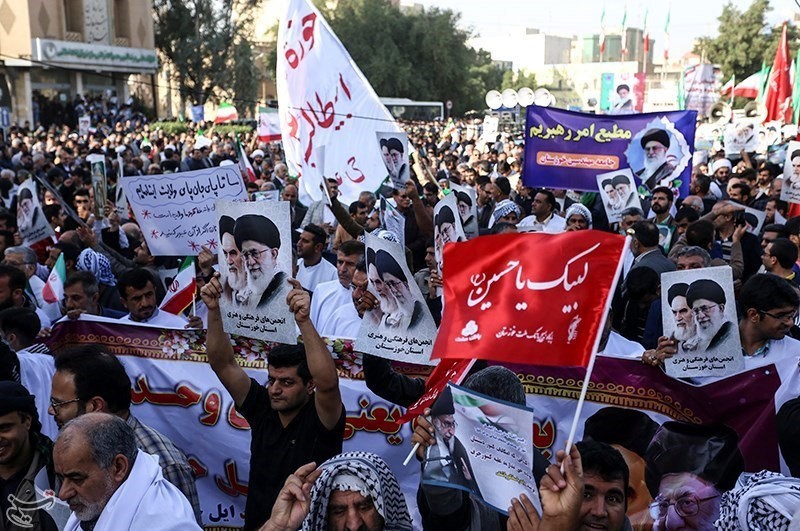 © Reuters. People take part in pro-government rallies, Iran
© Reuters. People take part in pro-government rallies, IranDUBAI (Reuters) – Iranian Nobel Peace laureate Shirin Ebadi has urged the people of Iran to engage in civil disobedience and press on with nationwide protests that are posing the boldest challenge to its leaders since pro-reform unrest in 2009.
The pan-Arab daily Asharq Al-Awsat quoted Iran’s most famous human rights lawyer as saying Iranians should stay on the street and that the constitution gives them the right to protest.
Iran’s elite Revolutionary Guards have deployed forces to three provinces to put down anti-government unrest after six days of protests that have rattled the clerical leadership and killed 21 people.
The protests, which began over economic hardships suffered by the young and working class, have evolved into a rising against the powers and privileges of a remote elite, especially supreme leader Ayatollah Ali Khamenei.
The demonstrations seem to be spontaneous and without a clear leader, cropping up in working-class neighborhoods and smaller cities, but the movement also seems to be gaining traction among the educated middle class and activists who took part in the 2009 protests
Ebadi called on Iranians to stop paying water, gas and electricity bills and taxes and to withdraw their money from state banks to exert economic pressure on the government and so force it to stop resorting to violence and meet their demands.
“If the government has not listened to you for 38 years your role has come to ignore what the government says to you now,” Asharq Al-Awsat quoted Ebadi as saying in an interview.
Ebadi, awarded the Nobel Peace Prize in 2003, is one of a number of exiled critics of Iran’s leadership.
The unrest has drawn sharply varied responses internationally, with Europeans expressing unease at the delighted reaction by U.S. and Israeli leaders to the display of opposition to Iran’s clerical establishment.
In a sign of official concern about the resilience of the protests, Revolutionary Guards commander Major General Mohammad Ali Jafari said he had sent forces to Hamadan, Isfahan and Lorestan provinces to tackle “the new sedition”.
Most of the casualties among protesters have occurred in those regions of the sprawling Islamic Republic.
The Revolutionary Guards, the sword and shield of Iran’s Shi’ite theocracy, were instrumental in suppressing an uprising over alleged election fraud in 2009 in which dozens of mainly middle-class protesters were killed. Khamenei condemned that unrest as “sedition”.
Thousands of Iranians took part in pro-government rallies in several cities on Wednesday morning in a state-sponsored show of force aimed at countering the outpouring of dissent.
State television broadcast live footage of rallies where marchers waved Iranian flags and portraits of Khamenei, Iran’s paramount leader since 1989.
The leader of Lebanon’s Iran-backed Hezbollah group, Sayyed Hassan Nasrallah, played down the protests as economic discontent, saying they were not rooted in the political issues that spurred huge numbers to demonstrate in 2009 and would end soon.
He described them as “nothing to worry about”.
Fusion Media or anyone involved with Fusion Media will not accept any liability for loss or damage as a result of reliance on the information including data, quotes, charts and buy/sell signals contained within this website. Please be fully informed regarding the risks and costs associated with trading the financial markets, it is one of the riskiest investment forms possible.
Source: Investing.com




























